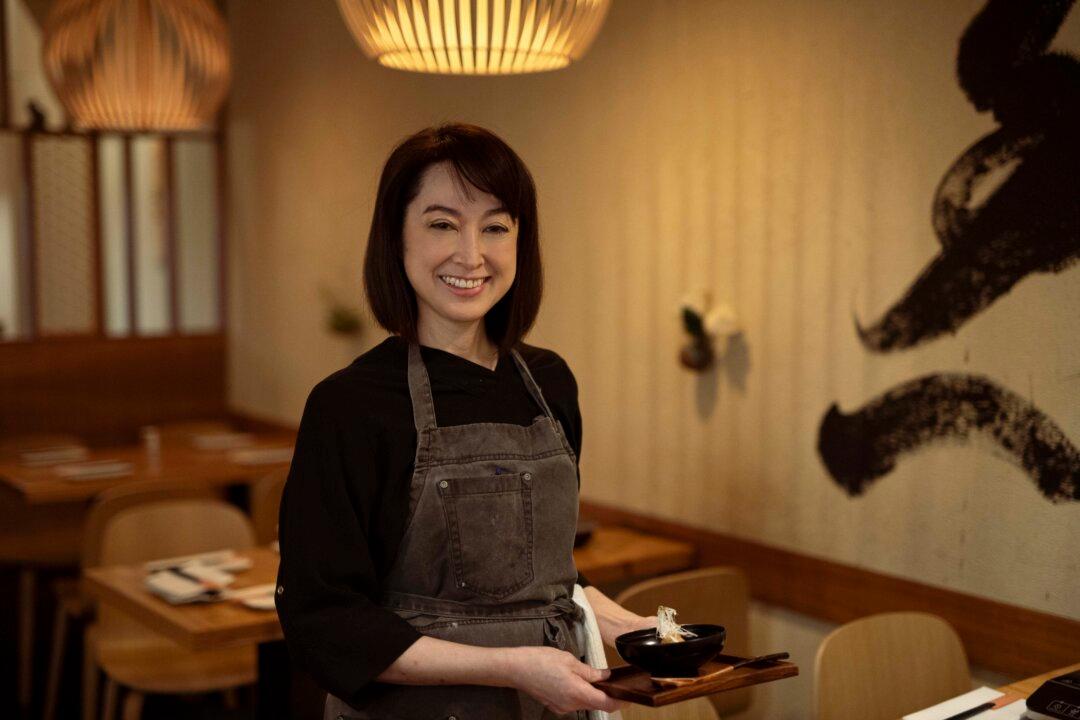In an industry known for its high risk of failure and low profit margins, Mie Okuda has survived opening a restaurant during an economic slump—twice. In the late 1990s, during Japan’s “Lost Decades” recession, she started a restaurant in one of the most restaurant-dense cities in the world, Tokyo’s Ginza district. Years later in America, Okuda opened a restaurant in New York, just as the effects of the 2008 financial crisis began to be felt.
The latter happened months after Okuda immigrated to the United States in 2007, and the former was a decisive career change after years of working in architecture and design. Despite the odds, she succeeded in winning over diners each time. Okuda herself isn’t sure how she manages to do it. “I don’t know whether to say it’s good timing or bad timing,” she joked. Her Tokyo restaurant did so well—counting politicians among its patrons and getting frequent television publicity—that within a few short years, a local bank gave her a no-credit loan to expand the eatery to the whole floor. Her New York restaurant Momokawa became popular within two years of opening and has been awarded a Michelin Guide Bib Gourmand title, meaning it’s an establishment with good food at a good value. It is thriving despite a pandemic that has felled many restaurants in the city.






